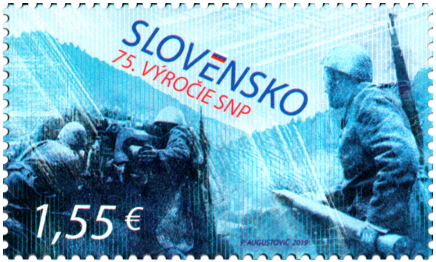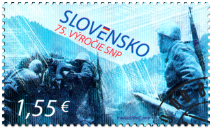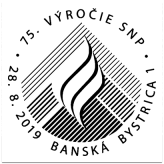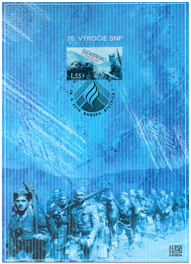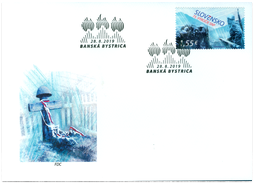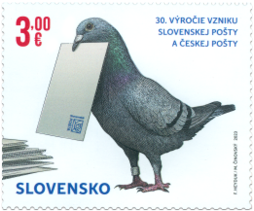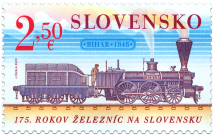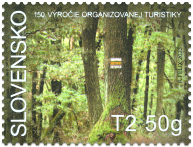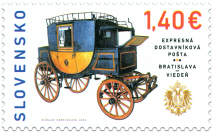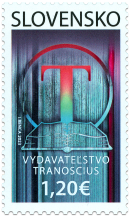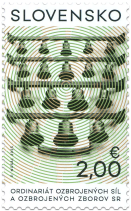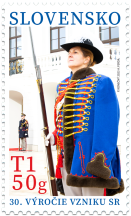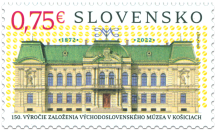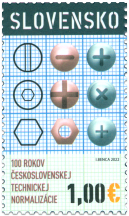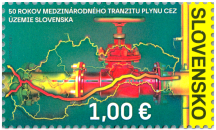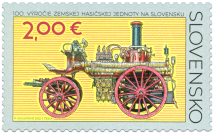691 Date of issue
28.08.2019 Face value
1.55 € Sell price
1.55 €
In the hot summer of 1944 Slovakia moved over to join the right side of the war. This was no thanks to the government of the time, but to the opposition who in order to salvage the nation and its interests, proved to be capable of overcoming its various irreconcilable political and personal disputes. Where would we be today without the Slovak National Uprising? What did it mean and what does it mean for our history? The contemporary Slovak Republic was at war with the anti-Nazi allies, which had, as early as 1941, acknowledged the Beneš government in London as the only legal representatives of the Czechoslovak Republic. Imagining that it was possible for the Slovak Republic to calmly “sail through” those turbulent times and that it could be preserved after the end of the war was merely an illusion of political dreamers. It had nothing to do with the reality of the already agreed post-war arrangement of the world.
Through its servile loyalty to Nazi Germany, the Slovak government lost all its credit long before the end of the war; after all, its own army and gendarmerie had turned their backs on it. The truth is that there was no room for Slovaks in Hitler’s plans following a possible victory. He considered them to be second-class citizens, partially suitable for assimilation, but mostly as mere slaves in the territory somewhere beyond the Urals. What kind of ally aims to liquidate a “friendly nation”? They were not an ally but an enemy, and there is no getting around this fact. The decisiveness of the leaders of the Slovak National Uprising put us on the side of the anti-Hitler coalition.
The Slovak National Uprising was undoubtedly a highly significant political turnaround. The day on which it was proclaimed – 29th August – is a state holiday in the Slovak Republic. This is completely natural and the adoption of this law was based on clearly declared historical facts. Questioning these facts serves a definite purpose, and is based on the clear political interests of a narrow group of people who are representative of those in that period of Slovak politics who wished to further cooperate with the Nazis, thus losing their political future. The representatives of Hlinka’s Slovak People’s Party did not understand or refused to understand the social reality of the time and were capable of dragging the whole nation through the mud of collaboration. But, fortunately, they stood alone, deserted by the nation, the security forces, and the army. Losers can only become winners when their battle is for a just cause. Members of Hlinka’s party stood on the wrong side of the barricade. Understanding this undeniable fact is the key to the history of the Slovak National Uprising. This is why we must continually return to this historical event, because to forget allows the door to historical lies and distortions to be opened. To forget means that we do not appreciate the democratic legacy of the event that allowed us to return to democratic Europe. The motive of issued postage stamp is an archive photography depicting the combat of Slovak soldiers during uprising created by JUDr. Ivan Székely.
Stanislav Mičev
© 2024 POFIS - Postal philatelic service. All rights reserved

